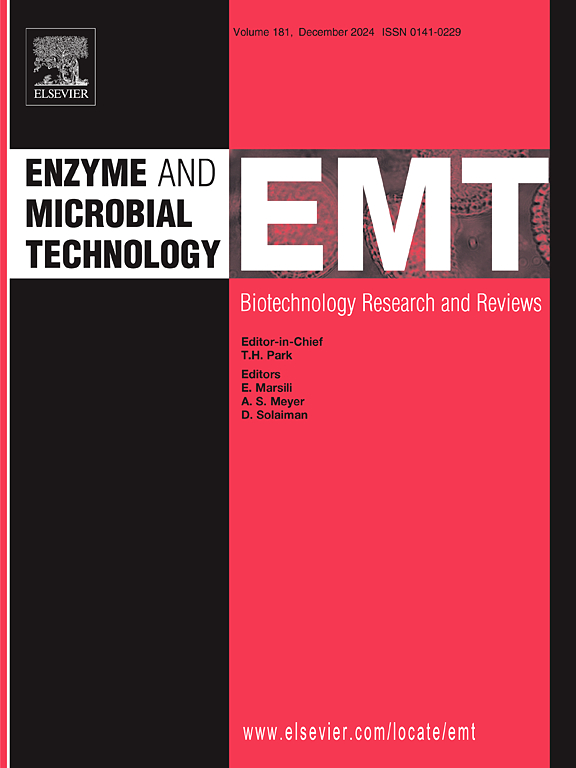纳米蔚蓝蛋白肽作为先天免疫反应的诱导剂
IF 3.7
3区 生物学
Q2 BIOTECHNOLOGY & APPLIED MICROBIOLOGY
引用次数: 0
摘要
Azurin是一种从铜绿假单胞菌中提取的氧化还原活性蛋白,具有抗菌和抗癌特性。在这项研究中,我们首次评估了其纳米颗粒形式(纳米azurin)对关键先天免疫细胞-中性粒细胞、巨噬细胞和自然杀伤细胞(NK)的免疫调节作用。纳米azurin(0.1-1 µg/mL)显著增强了中性粒细胞介导的对空肠弯曲杆菌和粪肠球菌的杀伤作用,将杀伤效率分别从基线值的- 15 %和- 7 %提高到- 83 %和- 76 %。它还增强了中性粒细胞介导的癌细胞增殖抑制。在巨噬细胞中,纳米azurin以剂量依赖性的方式刺激吞噬活性,对蜡样芽孢杆菌的增强效果最高(1 µg/mL时增加404.6 %)。细胞因子分析显示,纳米azurin降低了LPS诱导的促炎细胞因子(TNF-α, IL-1β, IL-6)的产生,同时显著增加抗炎IL-10的水平,与单独LPS处理相比,其水平高达441.9 %。在NK细胞中,纳米azurin显著增加了对多种癌细胞系的细胞毒性,达到与IL-2刺激相当的水平。此外,纳米azurin升高IFN-γ和TNF-α的产生,表明nk介导的免疫反应被激活。这些发现表明,纳米azurin增强了先天免疫细胞的抗菌和抗癌功能,并调节细胞因子反应,支持其作为一种新型免疫治疗剂的潜力。本文章由计算机程序翻译,如有差异,请以英文原文为准。
Nano-azurin peptide as an inducer of innate immune responses
Azurin, a redox-active protein derived from Pseudomonas aeruginosa, has demonstrated antimicrobial and anticancer properties. In this study, we evaluated for the first time the immunomodulatory effects of its nanoparticle form (nano-azurin) on key innate immune cells—neutrophils, macrophages, and natural killer (NK) cells. Nano-azurin (0.1–1 µg/mL) significantly enhanced neutrophil-mediated killing of Campylobacter jejuni and Enterococcus faecalis, increasing killing efficiency from baseline values of −15 % and −7 % to −83 % and −76 %, respectively. It also potentiated neutrophil-mediated inhibition of cancer cell proliferation. In macrophages, nano-azurin stimulated phagocytic activity in a dose-dependent manner, with the highest enhancement observed against Bacillus cereus (404.6 % increase at 1 µg/mL). Cytokine analysis revealed that nano-azurin attenuated LPS-induced production of proinflammatory cytokines (TNF-α, IL-1β, IL-6) while markedly increasing anti-inflammatory IL-10, with levels rising up to 441.9 % compared to LPS treatment alone. In NK cells, nano-azurin significantly increased cytotoxicity against multiple cancer cell lines, reaching levels comparable to IL-2 stimulation. Additionally, nano-azurin elevated IFN-γ and TNF-α production, indicating activation of NK-mediated immune responses. These findings demonstrate that nano-azurin enhances antimicrobial and anticancer functions of innate immune cells and modulates cytokine responses, supporting its potential as a novel immunotherapeutic agent.
求助全文
通过发布文献求助,成功后即可免费获取论文全文。
去求助
来源期刊

Enzyme and Microbial Technology
生物-生物工程与应用微生物
CiteScore
7.60
自引率
5.90%
发文量
142
审稿时长
38 days
期刊介绍:
Enzyme and Microbial Technology is an international, peer-reviewed journal publishing original research and reviews, of biotechnological significance and novelty, on basic and applied aspects of the science and technology of processes involving the use of enzymes, micro-organisms, animal cells and plant cells.
We especially encourage submissions on:
Biocatalysis and the use of Directed Evolution in Synthetic Biology and Biotechnology
Biotechnological Production of New Bioactive Molecules, Biomaterials, Biopharmaceuticals, and Biofuels
New Imaging Techniques and Biosensors, especially as applicable to Healthcare and Systems Biology
New Biotechnological Approaches in Genomics, Proteomics and Metabolomics
Metabolic Engineering, Biomolecular Engineering and Nanobiotechnology
Manuscripts which report isolation, purification, immobilization or utilization of organisms or enzymes which are already well-described in the literature are not suitable for publication in EMT, unless their primary purpose is to report significant new findings or approaches which are of broad biotechnological importance. Similarly, manuscripts which report optimization studies on well-established processes are inappropriate. EMT does not accept papers dealing with mathematical modeling unless they report significant, new experimental data.
 求助内容:
求助内容: 应助结果提醒方式:
应助结果提醒方式:


